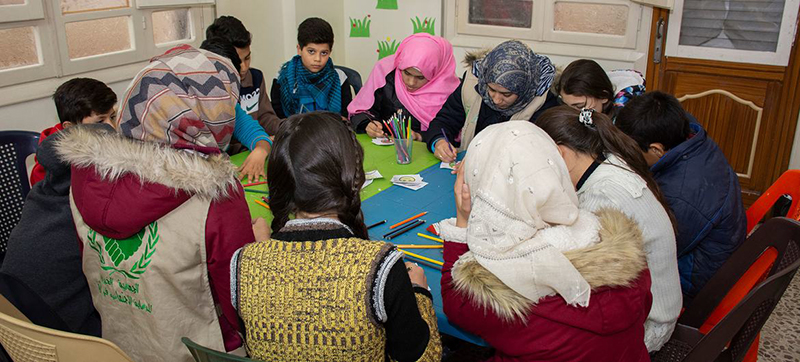 MiddleEast Crisis
MiddleEast Crisis
Middle East and North Africa: Addressing highest rates of youth unemployment in the world
New York: More than 33 million new jobs need to be created by 2030 in the Middle East and North Africa region by 2030, if the world’s largest unemployment hot spot is to be substantially improved, four United Nations agencies said on Monday.
The joint-release by the UN labour agency, ILO, the UN Development Programme (UNDP), the UN Population Fund (UNFPA) and the UN Children’s Fund (UNICEF) was issued ahead of a two-day meeting in Amman, Jordan, aiming to address the youth transition from learning, to work, a key priority for adolescents and young people across the vast predominantly Arabic-speaking region.
Exchange good practices
The high-level regional meeting on Young People’s Learning, Skilling, Inclusion and Work, runs for two days, bringing together government officials from key sectors, the private sector, and the UN, in dialogue with young people themselves to enable an exchange of good practices.
“Current education systems and curricula do not match the evolving labour market and the changing nature of work. They do not provide young people with enough skills, critical to success in today’s economy”, the statement said.
Skills such as communication, creativity, critical thinking, problem-solving and cooperation, are lacking in the skillsets of many young people.
According to the agencies, “healthy, skilled educated adolescents and youth can drive positive change towards a world fit for them that promotes and protects their rights”.
Inequalities and vulnerable contexts
Young people continue to face a host of challenges in the region - especially those living in poverty or in rural areas; refugees, displaced, migrants, girls and young women; and people with disabilities; who are more likely to be out of school and left behind.
According to UN data, before the COVID-19 pandemic, the region already had more than 14 million children out of school and one of the lowest rates of return to education in the world. Furthermore, the pandemic has deepened the education crisis and widened existing inequalities.
Unemployment stunts potential
Youth unemployment in those countries is almost twice as high as the world average, and has grown 2.5 times faster than world average between 2010 and 2021.
These numbers represent a significant drain on the economic potential of the region. To reduce the overall unemployment rate to 5 per cent and to be able to absorb the large number of young people entering the workforce and stabilize youth unemployment, the region needs to create more than 33.3 million new jobs by 2030.
Worldwide, the recovery of the global jobs market is also going into reverse, ILO, said on Monday, blaming COVID and “other multiple crises” that have increased inequalities within and between countries.
According to its latest update on the world of work, there are 112 million fewer full-time jobs today than there were before the pandemic.
Expected outcomes
The regional meeting aims to address the means of strengthening links between learning and the labour market.
These include enhancing education systems - including skilling and technical and vocational education and training - strengthening links between learning and the labour market; enhancing policies, and exploring opportunities with the private sector to create jobs and support youth entrepreneurship.
“Young people need life skills education to help them explore and nurture positive values regarding their health, rights, families, relationships, gender roles and equality, and empower them to shape their lives and make informed decisions about their reproductive life”, the agencies highlighted.
The event will provide recommendations from the Arab States / Middle East and North Africa Region to the upcoming UN Secretary General’s Global Summit on Transforming Education in September 2022.
Support Our Journalism
We cannot do without you.. your contribution supports unbiased journalism
IBNS is not driven by any ism- not wokeism, not racism, not skewed secularism, not hyper right-wing or left liberal ideals, nor by any hardline religious beliefs or hyper nationalism. We want to serve you good old objective news, as they are. We do not judge or preach. We let people decide for themselves. We only try to present factual and well-sourced news.







